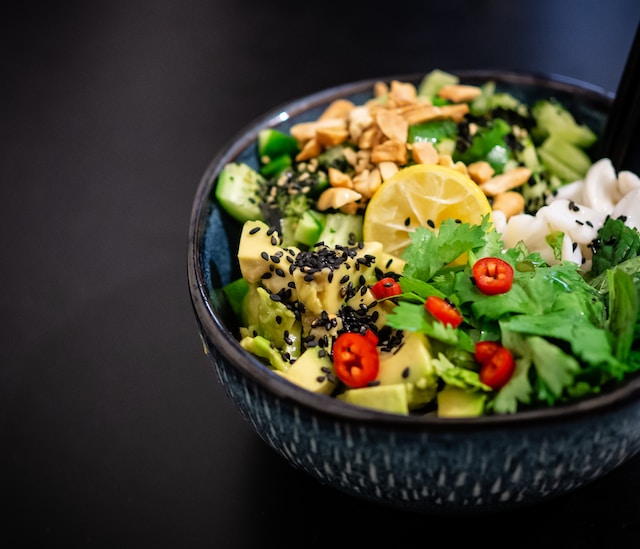
When you hear the word “inflammation,” you probably picture a part of the body that has swollen, feels painful, and may have lost function. You imagine it as something visible or tangible—but that’s not always the case.
In this article, you'll take a closer look at how the food you eat can influence immune processes you may be experiencing, even beyond the gut. You’ll also learn how to follow an anti-inflammatory diet through your 3R Immunonutrition Protocol.
What Is an Anti-Inflammatory Diet?
When you think of the word “diet,” it likely brings to mind a meal plan focused on portion control, fats, carbs, or calorie counts aimed at reaching a certain body weight.
Harvard University defines inflammation as a process in which immune cells attack invaders and begin the repair process. Inflammation can cause redness, swelling, heat, and pain.
But this also happens when you eat pro-inflammatory foods that are hard to digest. If they’re only partially digested, they cause inflammation at a more cellular level in your gut—home to 70% of your immune system.
To keep your immune system balanced, you need a healthy gut—with enough digestive enzymes to help break down and absorb nutrients, and a friendly, diverse gut microbiota that supports your immune defense.
If you experience chronic, sustained inflammation, you may eventually develop autoimmune disorders, depending on your genetics. These conditions are not only inherited but can be triggered by an inflammatory lifestyle—which includes an inflammatory diet.
You should consider how your body reacts to specific foods. Depending on your digestion, a food may be either friendly or harmful. This makes the difference between an anti-inflammatory or inflammatory diet.
An anti-inflammatory diet should also replenish your levels of:
- Macronutrients: protein, fats, carbohydrates
- Micronutrients: vitamin D, vitamin C, vitamin A, magnesium, selenium, iodine, zinc, etc.
In addition, your meal plan should be adjusted based on:
- Your weight and height
- Your age
- Your lifestyle and physical activity level
- Your current health condition
Benefits of an Anti-Inflammatory Diet
By following this type of diet, you can heal your gut, improve digestion and nutrient absorption, and reduce chronic inflammation. Additionally, you can:
- Reduce chronic symptoms you should not have “gotten used to” or “normalized”
- Lower psychological stress levels
- Regain mental health and prevent depression and anxiety
- Regulate hormones and prevent conditions such as endometriosis, premenstrual syndrome, polycystic ovary syndrome (PCOS), and hyperinsulinism
- Normalize cholesterol and triglyceride levels
- Reach your ideal weight
- Balance your gut microbiota and prevent small intestinal bacterial overgrowth (SIBO)
- Prevent inflammatory bowel diseases such as celiac disease, ulcerative colitis, and Crohn’s disease
- Prevent other extraintestinal inflammatory symptoms and conditions: migraines, eczema, acne, lupus, multiple sclerosis (MS), arthritis, etc.
Recommended Foods in an Anti-Inflammatory Diet
The foods recommended in an anti-inflammatory diet may include some commonly found in the Mediterranean diet. However, at NutriWhite, we focus on those you can digest and absorb well (Kurowska A, 2023), and that help replenish nutrients:
Fruits and vegetables
They help replenish essential nutrients. These foods are rich in vitamins, minerals, and fiber when eaten whole. They contain antioxidants such as polyphenols, anthocyanins, carotenoids, flavonoids, lycopene, and quercetin. Choose ones that are easy to digest for your gut, such as:
- Leek
- Leafy greens
- Tomato
- Cruciferous vegetables
- Carrot
- Artichoke
- Garlic
- Onion
- Berries
For example, you can include fruits in your snacks and vegetables in each main meal.
Low glycemic index and load carbohydrates
Provide energy and fiber through this macronutrient in the form of tubers, vegetables, legumes, and low glycemic index/load fruits. Choose those that are easy to digest and don’t spike your insulin.
Friendly fats
Essential fats, always considering your tolerance. Olive oil, olives, avocado, and fatty fish are rich in essential fatty acids your body can’t produce, so you must replenish them through diet.
Spices
According to Arévalo Endara et al. (2022), roots like turmeric and ginger have anti-inflammatory power. Include them according to your individual tolerance.
Green tea
Green tea contains epigallocatechin gallate (EGCG), which has anti-inflammatory properties, especially in women with PCOS (Kamal DAM et al., 2021). You can consume it or take supplements with this compound, if tolerated.
Nuts and seeds
Once your gut is healthy, and depending on your tolerance, you can include nuts and seeds in your 3R Immunonutrition Protocol. Some can even replace inflammatory flours. We recommend checking our recipe section to learn how to use nut-based flours.
You can also use flaxseeds or chia as an egg substitute if you have a food sensitivity.
Foods to Avoid in an Anti-Inflammatory Diet
The pro-inflammatory foods we recommend removing in the 3R Immunonutrition Protocol, as they are hard to digest, include:
- Whole and refined grains due to gluten content
- Dairy products—even lactose-free or low-fat—due to casein content
- Sugar, as it disrupts your gut microbiota
- Soy and genetically modified or ultra-processed foods
We invite you to personalize your anti-inflammatory diet through the 3R Immunonutrition Protocol in an online consultation with our team of NutriWhite Ambassadors so you can strengthen your immune system.
References:
- ¿Qué es la inflamación? ¿Y por qué es importante para el desarrollo infantil? https://developingchild.harvard.edu/translation/que-es-la-inflamacion-y-por-que-es-importante-para-el-desarrollo-infantil/#:~:text=La%20inflamaci%C3%B3n%20es%20un%20proceso,%2C%20hinchaz%C3%B3n%2C%20calor%20y%20dolor.
- ¿Cuál es la diferencia entre BALT GALT y MALT? https://cienciaydatos.org/ciencia/biologia/cual-es-la-diferencia-entre-balt-galt-y-malt/#que_es_galt_tejido_linfoide_asociado_al_intestino_
- Salud intestinal, Salud inmunitaria. Relación entre intestino y sistema inmune: https://www.misistemainmune.es/inmunologia/salud-inmune/salud-intestinal-salud-inmunitaria-relacion-entre-intestino-y-sistema-inmune
- Arévalo Endara KG, Ayala Mendoza AA. Tesis [Internet]. 2022 [citado el 4 de Agosto de 2023]. Recuperado a partir de: http://repositorio.ug.edu.ec/handle/redug/61468
- Kurowska A, Ziemichód W, Herbet M, Piątkowska-Chmiel I. The Role of Diet as a Modulator of the Inflammatory Process in the Neurological Diseases. Nutrients. 2023 Mar 16;15(6):1436. doi: 10.3390/nu15061436. PMID: 36986165; PMCID: PMC10057655. https://pubmed.ncbi.nlm.nih.gov/36986165/
- Kamal DAM, Salamt N, Zaid SSM, Mokhtar MH. Beneficial Effects of Green Tea Catechins on Female Reproductive Disorders: A Review. Molecules. 2021 May 3;26(9):2675. doi: 10.3390/molecules26092675. PMID: 34063635; PMCID: PMC8124874.
NutriWhite Editorial Team











